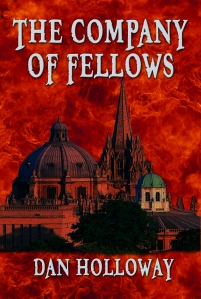Looking for free-to-paid and free-to-volume interfaces is a reactive and restrictive strategy. You are limiting yourself to what has worked and what has been shown to work and closing yourself off to things that might turn out to work very well. If you believe in free, look for ways to be free, and see where they lead. Be proactive. Following established models is great. And I wouldn’t advocate making exceptions your primary strategy. But don’t be closed, be open. There are lots of ways to be free. If you think free works, seek them out. Make your proposition not “My books free, how can I tell people and how can I monetize it?” but “How can I give my work away?”
20 months ago I wrote a piece for the fabulous Guy Gonzalez about the freemium debate in the writing world. Freemium was a buzzword in the wake of the publication of Chris Anderson's Free. He and Malcolm Gladwell were at each other's throats. Smashwords was new. Kindle was barely taking its first steps. Everyone wanted to know how FREE would change publishing forever (trawl the early posts of my old blog!).
Now, you rarely hear people talking about Chris Anderson (not even The Long Tail - see my previous post on The Large Middle). Or Kevin Kelly, whose 1000 True Fans is still the single most important article for any would-be self-publisher.
[caption id="attachment_326" align="aligncenter" width="201" caption="download my bestselling The Company of Fellows. It's just 70p"]
 [/caption]
[/caption]There's a good reason for that. We have genuine success models. We have Amanda Hocking and John Locke (we also have the same white elephants we always had - the likes of Konrath and Leather: as established figures, they as irrelevant as Radiohead and Nine Inch Nails). They made their name through Kindle. Not Smashwords. Not even really Scribd. They made their way, in other words, not by being free but by being cheap. AND they made their way not by building a following of 1000 fans each willing to pay a lot, but by selling lots of very cheap books to a gazillion people.
So, are Kelly and Anderson irrelevant now? Does free have a role in a writer's plans?
[caption id="attachment_325" align="aligncenter" width="144" caption="Download my adult full-length poem SKIN BOOK. It's FREE"]
 [/caption]
[/caption]I want to make some points. Debate can follow later, along with rabble-rousing (I feel the need to get more opinionated again. Endless diplomacy sits ill!), so for now just a few points:
- freemium is essentially about this question: how do you monetise free? In Predictably Irrational, Dan Ariely makes a strong case that there is a qualitative psychological difference between free and cheap. I'm not overly interested in how readers *value* books in a moral sense (that's a red herring that's used to beat people with the guilty stick), but it does mean that monetising free may be considerably harder than monetising cheap - Amanda Hocking's $0.99 intro to a $2.99 range is savvier than using free in the hope of gaining paid.
- If freemium is going to work, I think we need to look at both high volume and high price for the ultimate paid product. If there is a qualitative jump between $0 and $0.01 then if there is a place for free, it might as well be for introducing people to a $9.99 product or a $99 one as a $0.99 one. Whilst using low pricing will not work as an introduction to much higher multiples.
- At the moment most indie writers who make it are doing so through Kindle. They don't get to offer their books free on Kindle - at least, they can't wake up and say "today my book will be free" as they can on Smashwords. This may be skewing our view of the value of free. Publishers haven't had much luck taking on indies with marketing dollars. They are beginning to leverage free on Kindle. That's a space really worth watching.
- People may not read free books, but that may be irrelevant. What free can do is use volume downloads to inject a book into a distributor's search and recommendation algorithms. When they begin to charge that can be worth as much as word of mouth from the free downloaders. It ensures a minimum mass of paid readers who can then seed word of mouth recommendation if the book is up to scratch.
- Free is not just about freemium. For some writers (with my performance pieces and some of my other work, me included) being paid is not only not the ultimate goal, it's not any goal. The goal is bringing your work to an audience who otherwise wouldn't have access. Free may not be sufficient to do that. It may still be the best policy to work free as though you were going to monetize - and then not go the final step. So, advertising on the Kindle forums and Kindleboards as well as publishing to Smashwords, targeting Nook, where you can choose to make your work free
- loyal fans remain the key to long-term security. If you use freemium or if you use cheamium, the aim is not to sell lots of copies of this one book, it's to sell enough in the long term to make a living. My inkling is there's an algorithm linking fanbase to price and longevity (people who are fans of your work at x price will be y in number and will remain loyal for z years). Finding this balance will vary genre to genre, and is our quest for the philosopher's stone.
- Think of free as the first step to more than monetisation or volume. I'm going to bold the next bit because I have a feeling it's key. Looking for free-to-paid and free-to-volume interfaces is a reactive and restrictive strategy. You are limiting yourself to what has worked and what has been shown to work and closing yourself off to things that might turn out to work very well. If you believe in free, look for ways to be free, and see where they lead. Be proactive. Following established models is great. And I wouldn't advocate making exceptions your primary strategy. But don't be closed, be open. There are lots of ways to be free. If you think free works, seek them out. Make your proposition not "My books free, how can I tell people and how can I monetize it?" but "How can I give my work away?"
[caption id="attachment_327" align="aligncenter" width="300" caption="If you like my books you'll love this novel. It's just £2.14"] [/caption]
[/caption]
At the time of writing my book The Company of Fellows is #125 overall paid for Kindle UK at 70p There is a lot of my work available for free on the web. Try Year Zero Writers and its Dan Holloway tag for almost all my shorts and poems for free.
I agree with the main thrust of this; I think the main issue of 'free' is that of value, which unfortunately in our current culture is very much tied to price. I think people need to find a way to give things away for free without devaluing their work in some people's eyes.
ReplyDeleteSo for example a Christmas give away of a story (or song, or whatever) to fans - this to me doesn't indicate that the author doesn't value their story, but indicates they value their fans. Which feeds into the other idea of 1000 loyal fans....
I'm not sure I buy the price/value link, pardon the pun. I think people put value on an artist and their work for a whole host of things that has to do with authenticity, interaction, and unfathomables. I think what people "value" least of all these is the overtly commercial - it smacks of manipulation and people hate it. Doesn't stop them buying though.
ReplyDeleteI guess I think it's the same as the piece I wrote for the Saffinas about reading,
http://markwilliamsinternational.com/2011/05/12/warning-adult-content-if-youre-easily-offended-read-on/
and what I'd say about writing in general - we have to do what's inherently a good fit for us - and if that involves free then do it with gusto and originality and for itself. I guess I'm still a hopeless existentialist who thinks it hasn't become crass to use words like authenticity :)
I think people like me and you "value on an artist and their work for a whole host of things that has to do with authenticity...." Unfortunately I'm not sure I believe it about everyone, any more...
ReplyDeleteSo cynical for one so young, I know. And the worst of it is I'm not even young any more.